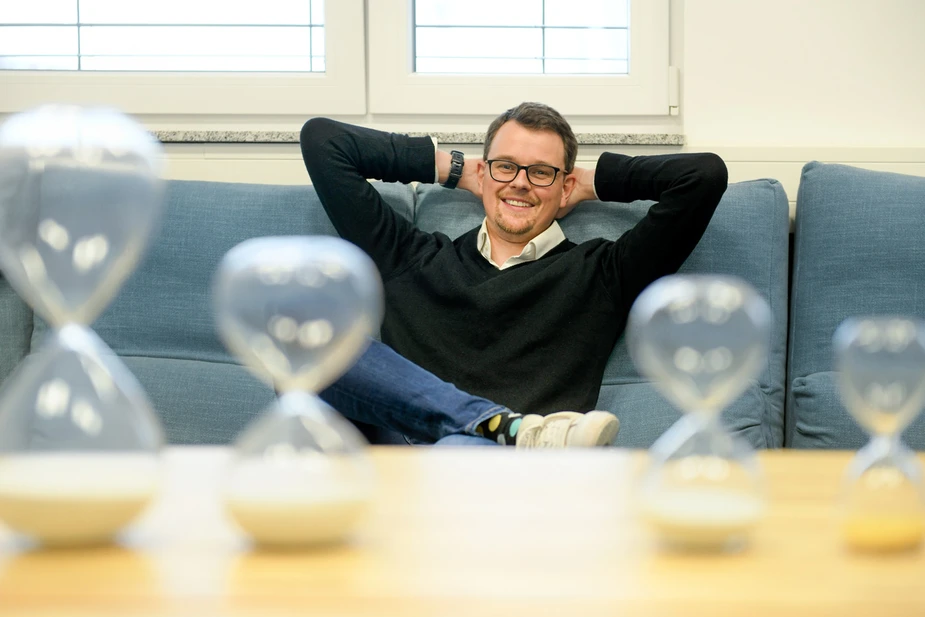The melanoma hunter
Sebastian Ahlberg works on improving diagnostics in Adlershof
Something to do with biology. This was a given for Sebastian Ahlberg, even when he was still at school in Güstrow, his hometown. Today, he is the head of a “start-up doing research” in Adlershof. This is what his company, Magnosco, which develops devices to improve the precision of skin cancer diagnostics, calls itself on its website. Career choices, however, often have a tendency to resemble long and winding roads.
The name of his company is a portmanteau. “Agnosco” is Latin and means “I realise”. The capital M stands for the enemy, who is to be identified and fought, the “malignant melanoma”, also known in German as “black skin cancer”. Ahlberg calls it one of the most “aggressive and deadly” tumour variants out there. On top, it also hard to identify, since a dark spot on the skin can be many things, most often a plain old mole.
Developed in Adlershof, the Magnosco approach to skin cancer is based on laser technology and, so far, it’s one of its kind in the world. A beam of light is directed at the suspicious area, causing the dark pigment in the skin, melanin, to glow. The spectrum of the reflected light differs depending on whether the laser hits benign or malignant tissue. Then, artificial intelligence takes over for evaluation.
As a rule, says Ahlberg, melanin glows less under laser exposure than other substances in the skin. The “dermatofluoroscopy” from Adlershof reverses this effect. “By using artificial intelligence,” says Ahlberg, “the method can be used for more than malignant melanoma. I am proud of our team. We can now see ourselves as a mature start-up.”
The company was founded in 2014. Since early 2018, the year that the first fluoroscopy devices were completed, Ahlberg has been part of the pack as one of two CEOs. Before that, he was project manager for a Berlin-based radiology start-up for three years, establishing tomography centres in Germany and Switzerland. This was after he had already worked on devices for early detection of skin cancer at Berlin-based medical technology company since 2011. He got to know that company while doing the research for his diploma in biosystems technology.
This was what it came down to when Ahlberg decided that, upon taking a closer look, a career as a biology teacher just didn’t seem that appealing anymore. He appreciates the “generalist” approach of the subject, which teaches very different skills: “It was in line with what I like to do anyway.” When Ahlberg moved to Magdeburg in 2006, the biosystems technology course he read was only two years old and only existed at the local university. He wrote his PhD at Charité – Universitätsmedizin Berlin on an experimental dermatology subject.
Medical technology is one of the big topics in Ahlberg’s life. The other one is field hockey. As a member of the Hockey Club 1931 e.V. in Mariendorf, he even played Bundesliga matches, but has reduced his commitment to the artificial turf when his now four-year-old daughter was born. “It’s not like I’m getting any younger,” says the 36-year-old.
Dr. Winfried Dolderer for Adlershof Journal
